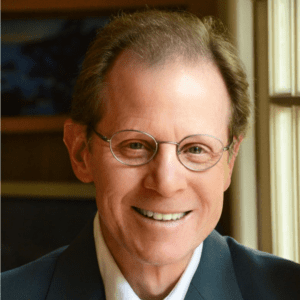With all the buzz about brain science, is it possible to lose sight of the mind?
Dan Siegel, a pioneer in the applications of brain science to psychotherapy, wants to make sure we don’t, reminding us that the mind is much bigger than the brain. It extends throughout the whole body and it also includes other people.
In this video with Networker Editor Rich Simon, Siegel explains what this means for psychotherapy, and for cultivating a fuller, more rewarding relationship between you and your client.
As a mental health professional, Siegel argues, you’re not just looking at what’s inside a client’s head. You’re working with the fully embodied, relational mind. And during the assessment phase, you’re fundamentally exploring just how healthy that mind is.
“The human mind is, in a very real sense, much bigger and more expansive than the skull that we imagine to house it,” Siegel says. “Specifically, relationships are the sharing between people of energy and information flow. The brain and its whole body are the embodied mechanism of that flow, and the mind is the self-organizing process that regulates that flow.” What you do with your mind, he adds, “can even change the structure of your brain.”
Rich Simon
Richard Simon, PhD, founded Psychotherapy Networker and served as the editor for more than 40 years. He received every major magazine industry honor, including the National Magazine Award. Rich passed away November 2020, and we honor his memory and contributions to the field every day.
Dan Siegel
Dan Siegel, MD, is the founder and director of education of the Mindsight Institute and founding codirector of the Mindful Awareness Research Center at UCLA, where he was also coprincipal Investigator of the Center for Culture, Brain and Development and clinical professor of psychiatry at the School of Medicine. An award-winning educator, he’s the author of five New York Times bestsellers and over 15 other books, which have been translated into over 40 languages. As the founding editor of the Norton Professional Series on Interpersonal Neurobiology (IPNB), he’s overseen the publication of over 100 books in the transdisciplinary IPNB framework, which focuses on the mind and mental health. A graduate of Harvard Medical School, Dan completed his postgraduate training at UCLA specializing in pediatrics, and adult, adolescent, and child psychiatry. He was trained in attachment research and narrative analysis through a National Institute of Mental Health research training fellowship focusing on how relationships shape our autobiographical ways of making sense of our lives and influence our development across the lifespan.













